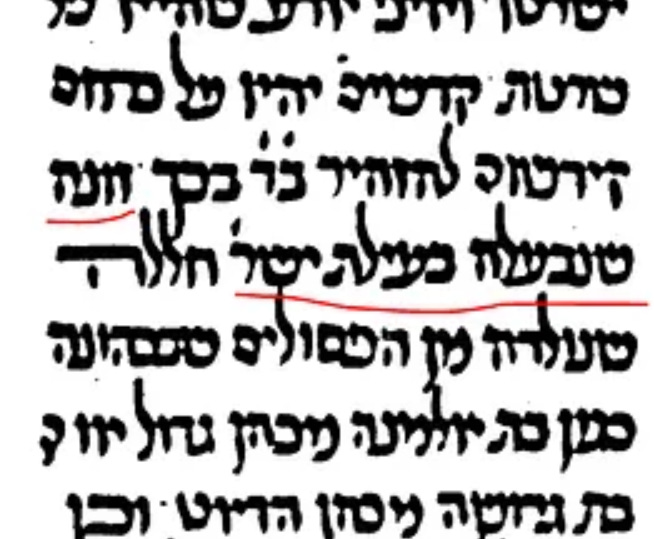Week in Review
Here are the posts from the past week:
Two posts about the sidra, Emor. I’m continuing the theme in which I explore a specific technically or theologically complex comment by a commentator (Rashbam, Radak on Bereshit, Chizkuni, Seforno); then discuss the Eliyahu Munk translation and show where it has gone off the rails, either deliberately or otherwise.
A Misunderstood Rashbam about Mikra’ei Kodesh, the festivals are מִקְרָאֵ֣י קֹ֑דֶשׁ. Usually, קרא means to call; however, מקרה with a heh means an occurrence. Rashbam explains something like the latter. אשר תקראו אותם מקראי קדש - אשר תזמנו אותם זמני קדש. But he translated it as the zmanim which you are tazminu. It might mean to designate, but he also explains מקרה הכסיל, where the meaning is occurrence. Which is it? Anyway, Munk assumes that מערע קדיש is a Targum of מקרה הכסיל, but it is really a Targum of מִקְרָאֵ֣י קֹ֑דֶשׁ.
In Chizkuni’s Version of Rashi Defining Harlot, manuscripts have a short version of Rashi which defines a zonah seemingly as an unmarried Israelite woman who sleeps with an (unmarried) Israelite man. Printings add words, and change this to a different position, sleeping with someone invalid to an Israelite, with concrete examples. Chizkuni objects to the former, as it’s a minority position. This makes sense. The Munk translation seems to invoke the printed version of Rashi, thus leaving it confusing and inconsistent with Chizkuni’s comment.
On Sefaria, an Interesting Commentary across several masechtot. Shaarei Torat Bavel, though at least on Shevuot, it seems somewhat sparse. For the comment I highlighted, I like the approach, invoking a Talmudic Sage biographer on a specific page, like the Person and the Page, and grappling with girsaot. Despite liking the general methodology, the particular comment I highlighted seems wrong. Emending the text of the gemara, and of a Rashi, so that Rav Ashi says everything, rather than (what I would say) his teacher, Rav Kahana (IV, of Pum Nahara) reacting to Rav Ashi’s recitation of the shmayta seems incorrect and farfetched in context.
There’s an instance in Shevuot where Rav Chisda says to Rava “Who Heeds You or Your Rabbi?” This is a common interaction involving this statement and these players. A while back, I wrote an article about this, focused on all of them but particularly the Nedarim inststance. Now, in Rav Chisda’s Attitude Regarding Rabbi Yochanan, I focus more on the Shevuot instance.
Speaking of Jewish Link articles
my summary post of last week’s article, Rav Malkiyo vs. Rav Malkiya, and how these similarly named Amoraim quoting Rav Ada bar Ahava appear throughout Shas
my new article for this week, Rav Nachman bar Rav Chisda’s Absurdities across Shas. When Rav Nachman bar Yitzchak stands up for him based on other people’s statements, does Rav Nachman only cite those others, or is he extrapolating from their words? Also, how do personal and scholastic relationships feed into what’s happening between Rava and Rav Chisda’s son, between Rava and Rav Nachman bar Yitzchak, and the two Rav Nachmans in the stories?




